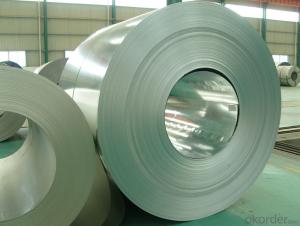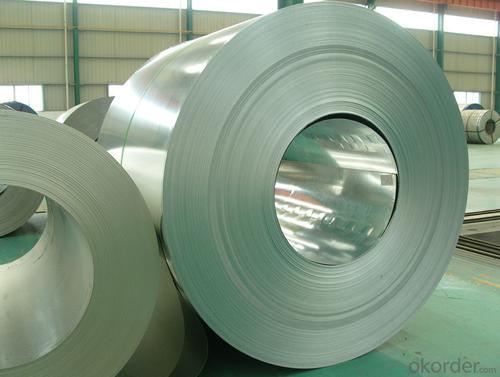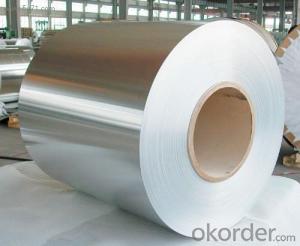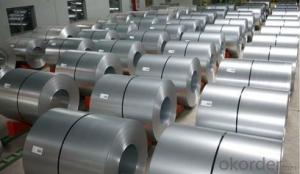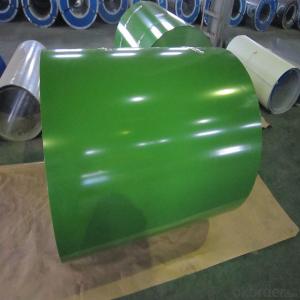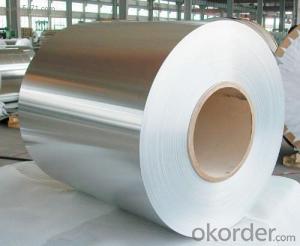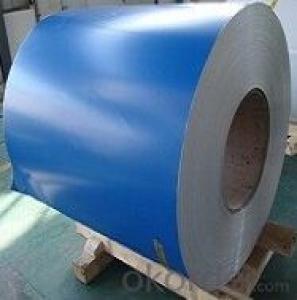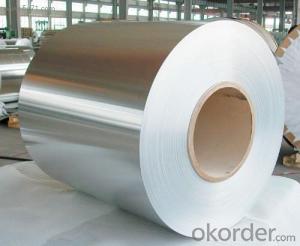Hot-dip Zinc Coating Steel Building Roof Walls -- Good Formability
- Loading Port:
- China main port
- Payment Terms:
- TT OR LC
- Min Order Qty:
- 50 m.t.
- Supply Capability:
- 10000 m.t./month
OKorder Service Pledge
OKorder Financial Service
You Might Also Like
Hot-dip Zinc Coating Steel Building Roof Walls -- Good Formability
1.Structure of Hot-dip Zinc Coating Steel Building Roof Walls -- Good Formability :
Hot-dip galvanized steel coils are available with a pure zinc coating through the hot-dip galvanizing process. It offers the economy, strength and formability of steel combined with the corrosion resistance of zinc. The hot-dip process is the process by which steel gets coated in layers of zinc to protect against rust. It is especially useful for countless outdoor and industrial applications.
2.Main Features :
• Excellent process capability
• Smooth and flat surface
• Workability, durability
• Excellent anticorrosive property
• High strength
3.Images:
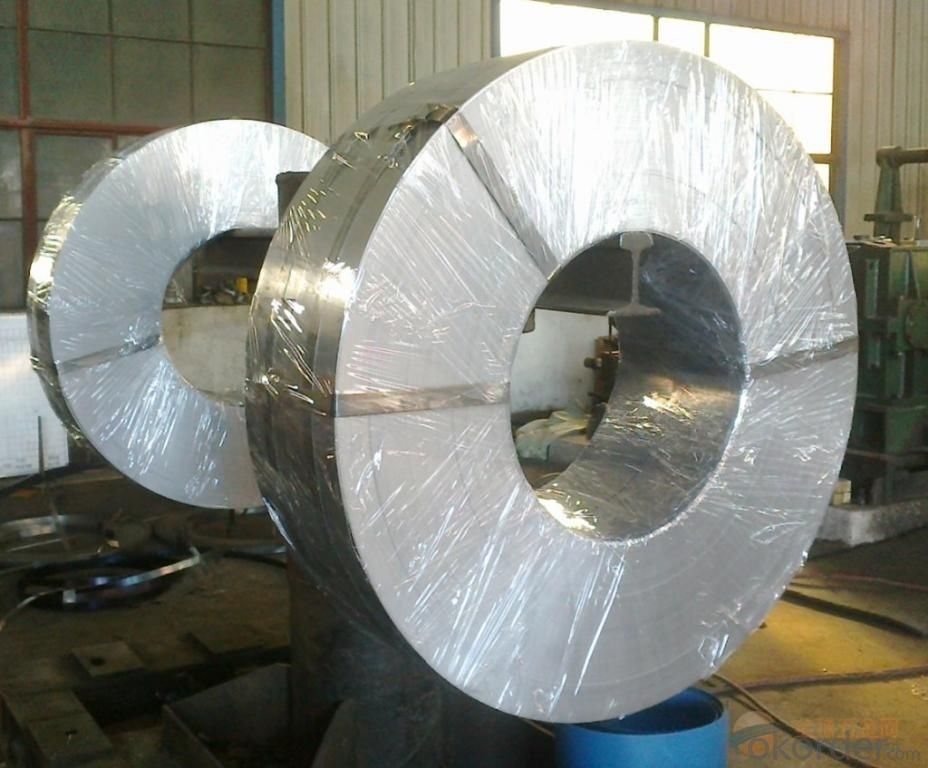
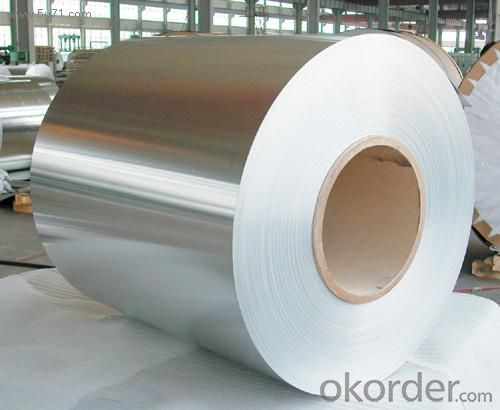
4.Hot-Dip Galvanized Steel Sheet Specification
Standard: ASTM, JIS,EN
Grade: CS, DX51D+Z,SGCC, SS 230~550,S220GD+Z~S550GD+Z, SGC340~SGC570
Thickness: 0.18mm~5mm
Width: max 2000mm
Coil weight:3-12 MT
Coil ID:508/610mm
Surface structure: zero spangle, regular spangle or minimum spangle
Surface treatment: Chromate treatment, Oiled/dry, skinpassed/non-skinpassed
5.FAQ of Hot-Dip Galvanized Steel Sheet
We have organized several common questions for our clients,may help you sincerely:
1.How to guarantee the quality of the products?
We have established the international advanced quality management system,every link from raw material to final product we have strict quality test;
2. How long can we receive the product after purchase?
Usually within thirty working days after receiving buyer’s advance payment or LC. We will arrange the factory manufacturing as soon as possible. The cargo readiness usually takes 15-30 days, but the shipment will depend on the vessel situation.
- Q: What are the pros with stainless steel? You don't have to oil them as much or you don't have to oil them at all?Is the rifling in the barrel typically stainless steel as well? if so, is this better accuracy or does the rifling last longer then conventional?are they worth the extra money?Thanks for any info you can provide!
- stainless steel is a alloyed steel that resist rust and corrosion. show it enough salt (sea spray or sweat) and it will pit Stainless steel goes all the way through ...it's not a coating like nickle-plate. the inside of a stainless barrel is stainless and they hold up just as well as carbon steel barrels. Extra money? Stainless is pretty popular in new production and the price is not that much different than comparable guns in blue. Oil OK... they do hold up better to salt and sweat than bluing...and there is not coating or plating that can wear off. Down side... the reflect light. Some can be a bit to shiny for some situations.
- Q: Hi,Well, I live near almost across the street from a forest, and my neighborhood is full of raccoons!!! Recently, I just purchased a bunny and have kept it at my cousin's house for the time being. He has a steel cage, and is about 6 months old. I am considering bringing him home and leaving him in the back yard with his steel cage. I am just afraid that raccoons can bite through the steel and get to him. So the question is... Is is possible for raccoons to bite through steel? Btw,Please don't answer hate comments about me being a bad rabbit owner. I simply want to know if raccoons can bite through steel. If it doesn't work out, the rabbit will stay at my cousins house until further notice. But please, I did not waste 5 points for unneeded answers. Thanksss!
- Well the raccoons can't bite through steel unless it is very thin steel, like aluminum foil thickness. But they have long arms and can reach into the cage so that would be my worry. They are also very clever so I don't know if it is safe for the bunny. That would depend upon the size of the cage and how hungry the raccoons are. The raccoons might be tempted to try to steal the bunny's food so that is a concern. Check with a pet shop owner or forester or someone like that who has knowledge about raccoons in the area.
- Q: What are the dimensions of steel coils used in the construction materials industry?
- The dimensions of steel coils used in the construction materials industry can vary depending on the specific application and requirements. However, common dimensions for steel coils in this industry range from 0.5mm to 3mm in thickness and 600mm to 2000mm in width. The length of steel coils can vary, but it is typically between 1000mm to 6000mm.
- Q: steel strutural
- how much of IS2062-92
- Q: How are steel coils inspected for chemical composition using spectroscopy?
- Spectroscopy techniques such as X-ray fluorescence (XRF) and laser-induced breakdown spectroscopy (LIBS) can be employed to examine the chemical makeup of steel coils. XRF involves directing an X-ray beam onto the surface of the steel coil, prompting the sample's atoms to emit distinct X-ray fluorescence radiation. By examining the energy and intensity of these emitted X-rays, one can determine the elemental composition of the steel. This method is both rapid and non-destructive, enabling swift and accurate assessment of the steel coil's chemical composition. On the other hand, LIBS entails focusing a laser beam onto the steel coil's surface, generating a high-temperature plasma. The plasma emits light, which is subsequently collected and analyzed using a spectrometer. This emitted light contains characteristic atomic and ionic emissions, allowing for the identification and quantification of various elements present in the steel. LIBS is also a non-destructive technique, providing real-time results and requiring minimal sample preparation. Both XRF and LIBS offer multiple benefits in terms of speed, non-destructiveness, and user-friendliness for inspecting the chemical composition of steel coils. These spectroscopic techniques play a vital role in quality control and assurance, ensuring that the steel meets the necessary specifications and standards for diverse industrial applications.
- Q: How are steel coils used in the production of furniture components?
- Steel coils are commonly used in the production of furniture components due to their strength, durability, and versatility. These coils, which are made from high-quality steel, are first uncoiled and then fed into a machine called a stamping press. The stamping press uses a die to shape and cut the steel coil into various components required for furniture production, such as chair frames, table legs, or brackets. The use of steel coils allows for the mass production of furniture components with consistent dimensions and high precision. The strength of steel ensures that the components can withstand heavy loads and provide stability to the furniture. Additionally, steel coils can be easily formed into different shapes and sizes, enabling the production of a wide variety of furniture designs. Moreover, steel coils are often coated or treated with protective layers such as paints or galvanization to enhance their resistance to corrosion, moisture, and wear. This ensures that the furniture components have a longer lifespan and maintain their aesthetic appeal over time. In summary, steel coils play a crucial role in the production of furniture components by providing strength, durability, and versatility. They enable the mass production of precise and consistent components, and their protective coatings ensure the longevity and quality of the final furniture products.
- Q: How are steel coils used in the appliance industry?
- Steel coils are used in the appliance industry to manufacture various components such as outer panels, frames, and internal structures of appliances like refrigerators, washing machines, and ovens. The coils are processed to create specific shapes and sizes, providing strength, durability, and stability to the appliances.
- Q: What are the common coil processing equipment used in the industry?
- Some common coil processing equipment used in the industry include coil slitters, coil flatteners, coil feeders, and coil recoilers. These machines are essential for processing metal coils into various shapes and sizes, allowing for efficient production and manufacturing processes.
- Q: How are steel coils used in the production of storage tanks and silos?
- Steel coils are an essential component in the production of storage tanks and silos due to their strength and durability. These coils are typically made from high-quality steel and are processed through various manufacturing techniques to attain the desired thickness and shape. In the production process, steel coils are first uncoiled and then cut into specific sizes and lengths to meet the requirements of the storage tank or silo design. The coils are then shaped into cylindrical sections, using bending and rolling machines, to create the main body of the tank or silo. Once the desired shape is achieved, the coils are welded together to form a continuous and secure seam. This welding process ensures that the tanks and silos are leak-proof and can withstand the pressure exerted by the stored materials. Furthermore, steel coils also play a crucial role in reinforcing the structure of storage tanks and silos. They are often used to create the roofs, bottoms, and other structural components of these storage units. The strength and resilience of steel make it ideal for withstanding the weight of the stored materials and any external forces that may be exerted on the tank or silo. Additionally, steel coils can be coated or treated with protective materials to enhance their resistance to corrosion and extend their lifespan. This is particularly important for storage tanks and silos that are used to store corrosive substances or are exposed to harsh environmental conditions. Overall, steel coils are a fundamental element in the production of storage tanks and silos, providing the necessary strength, durability, and structural integrity required for these storage units.
Send your message to us
Hot-dip Zinc Coating Steel Building Roof Walls -- Good Formability
- Loading Port:
- China main port
- Payment Terms:
- TT OR LC
- Min Order Qty:
- 50 m.t.
- Supply Capability:
- 10000 m.t./month
OKorder Service Pledge
OKorder Financial Service
Similar products
Hot products
Hot Searches
Related keywords
